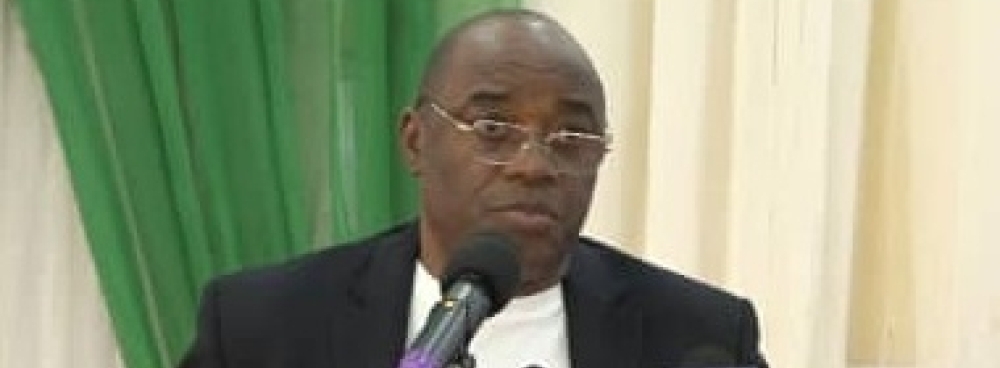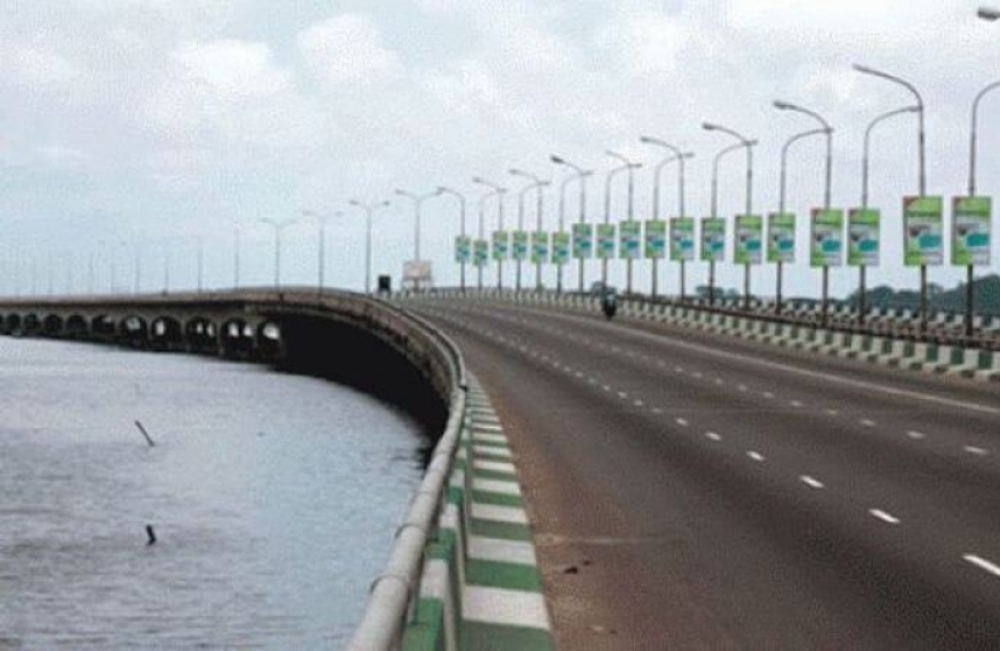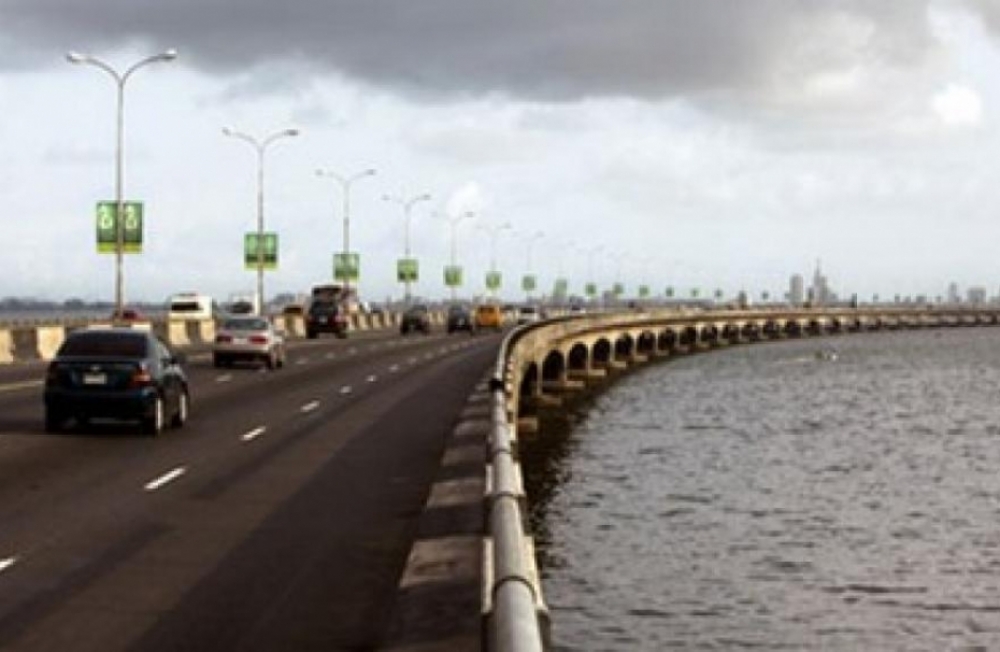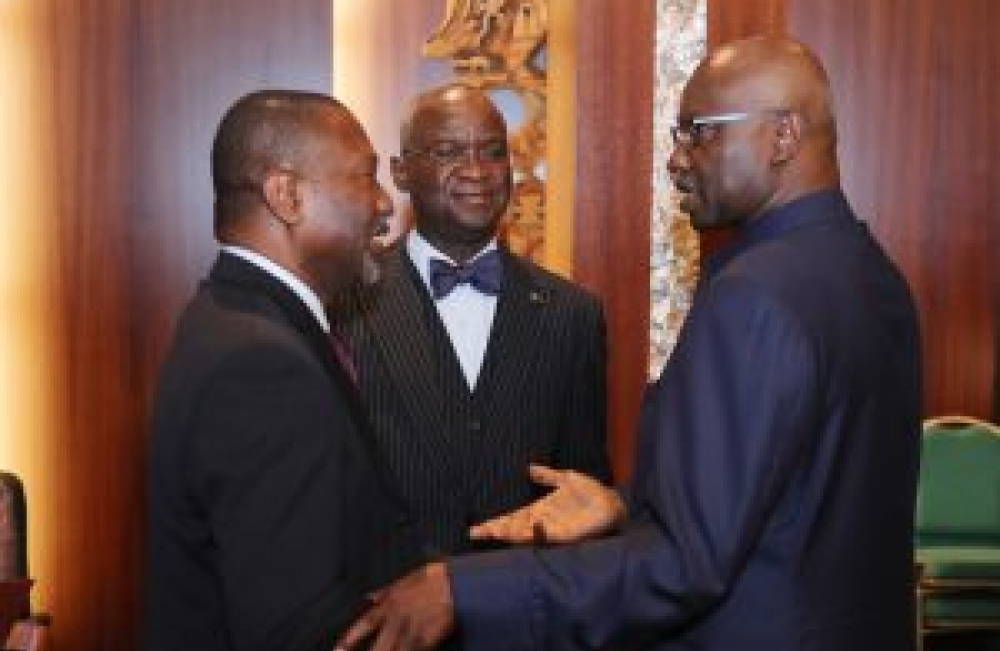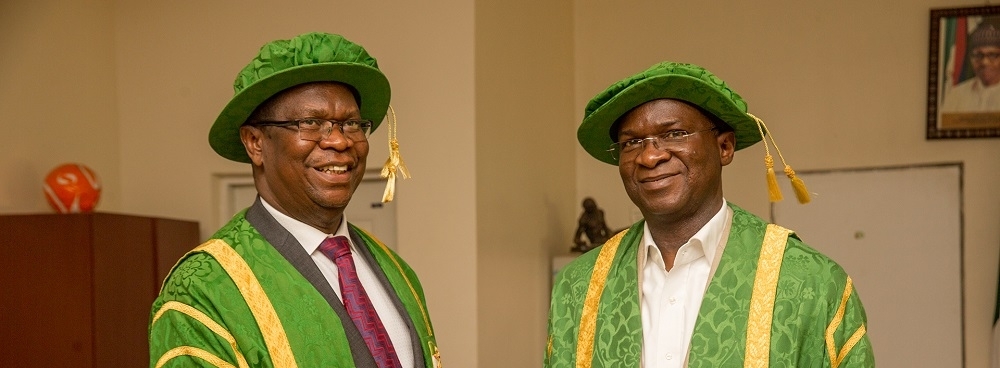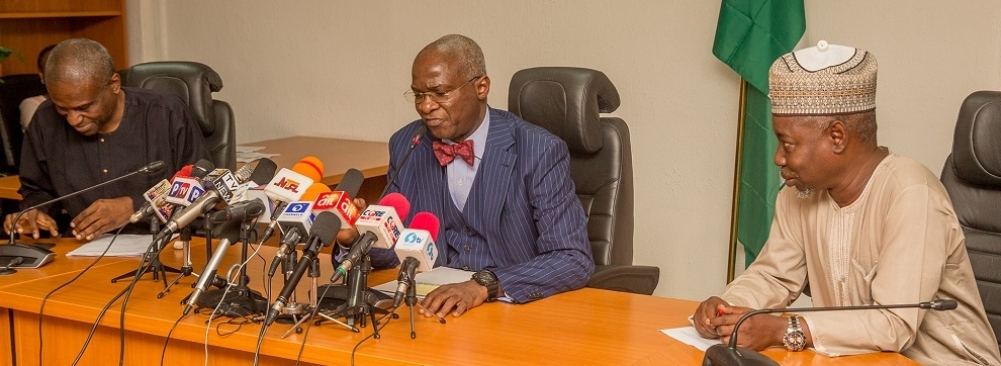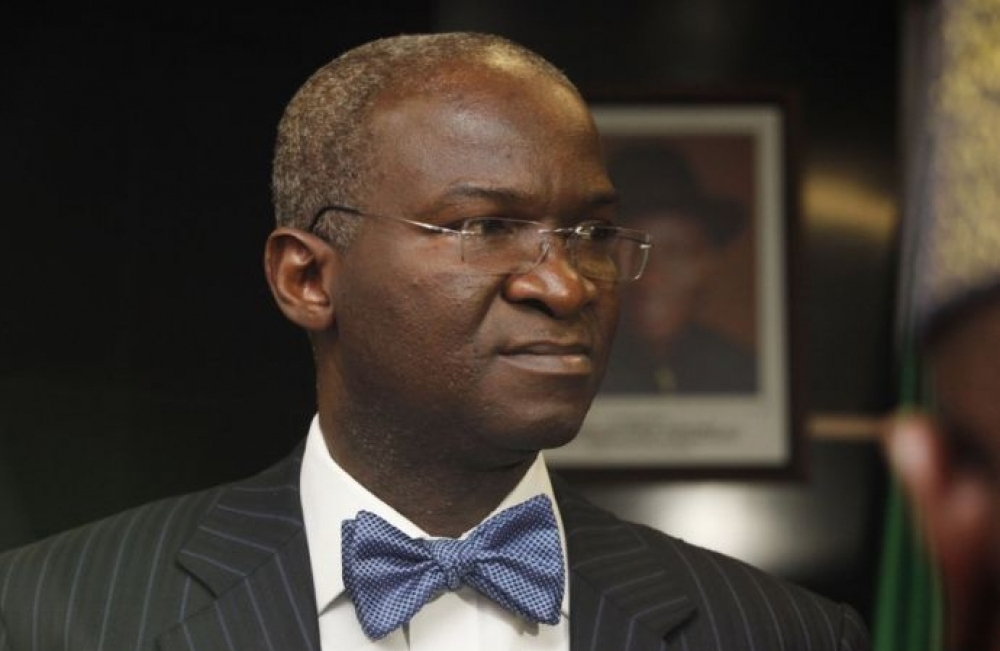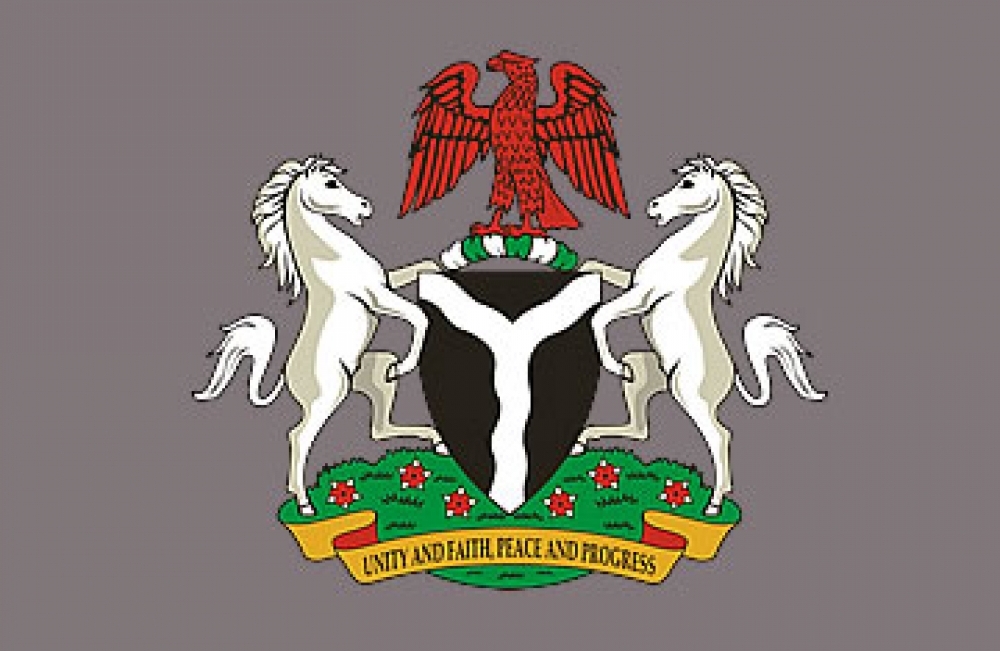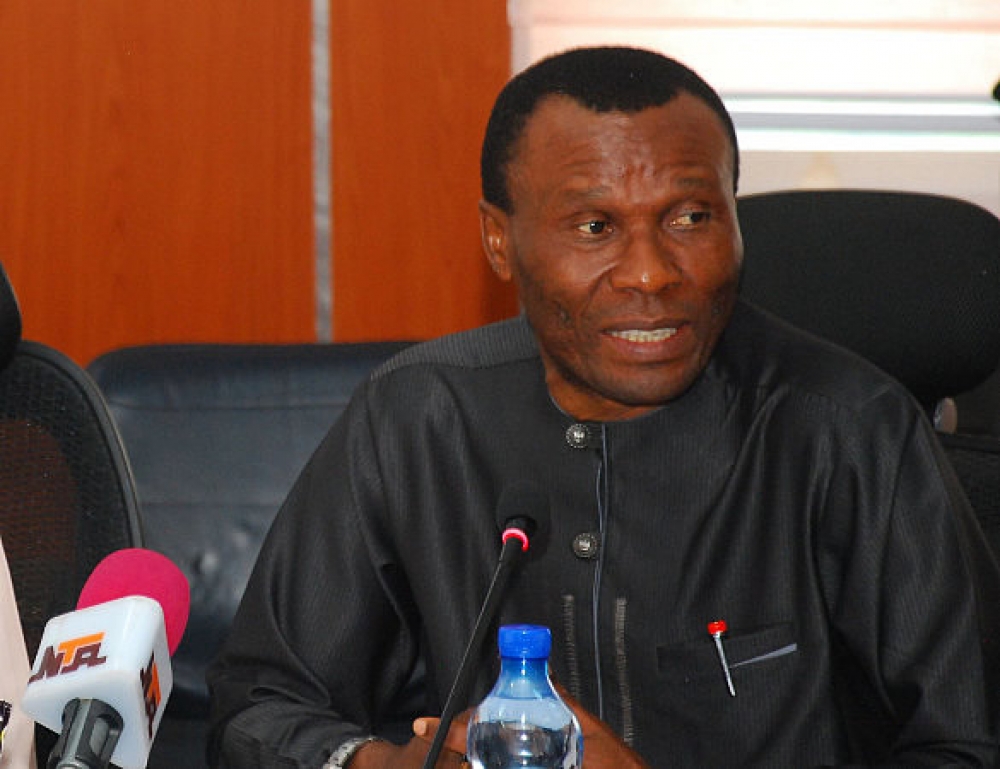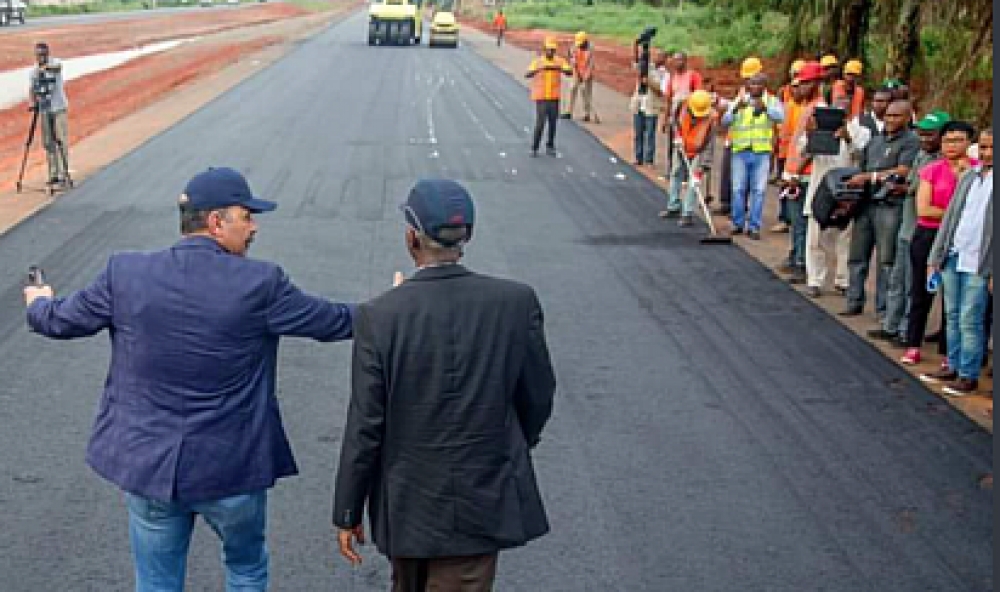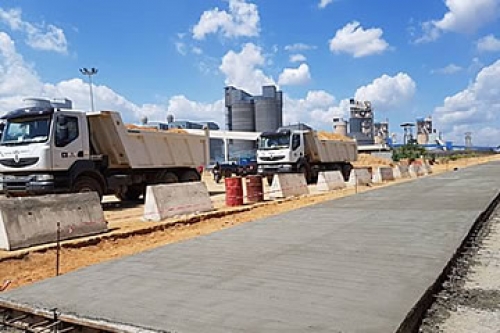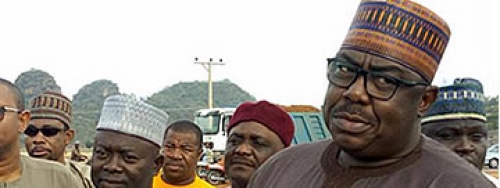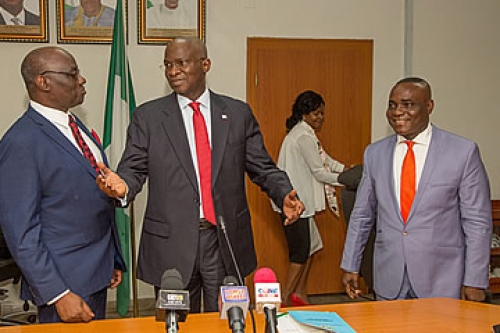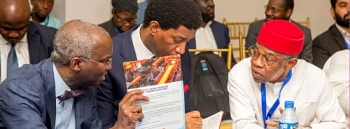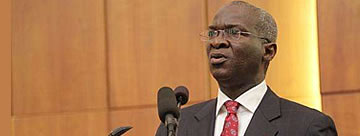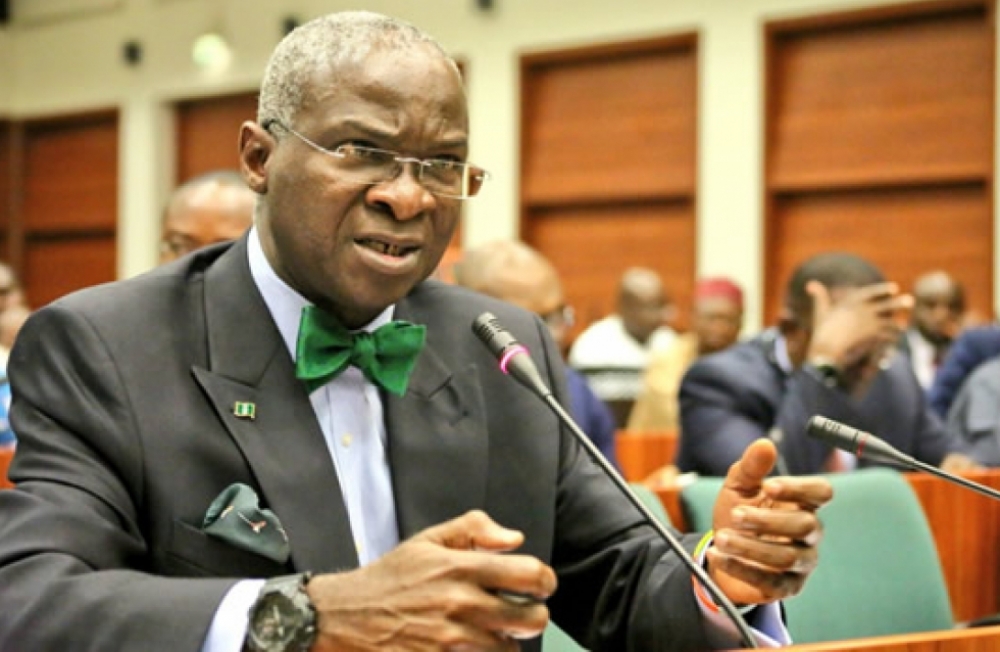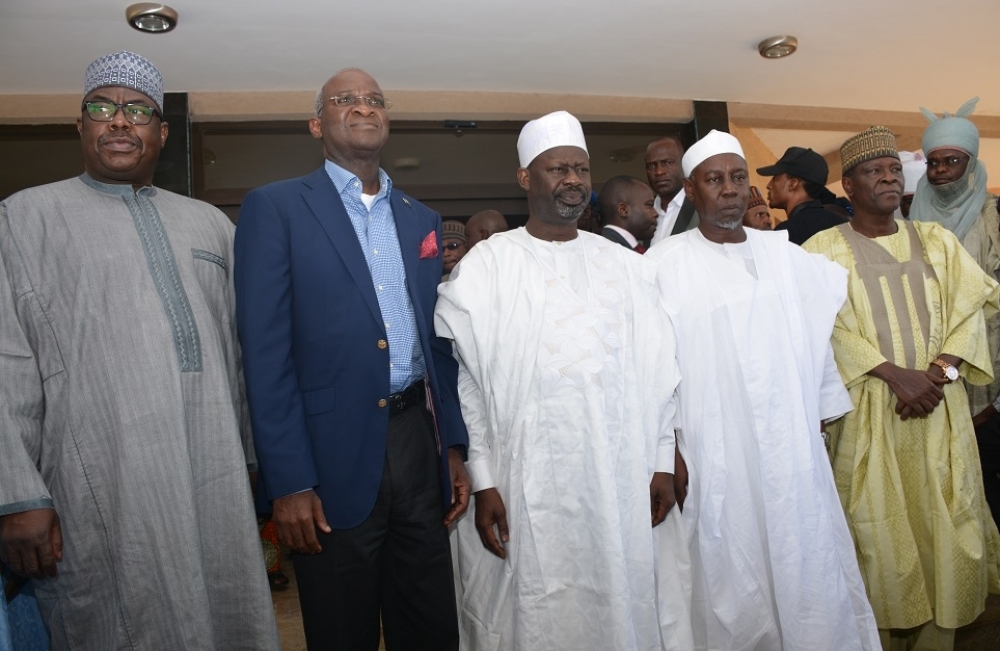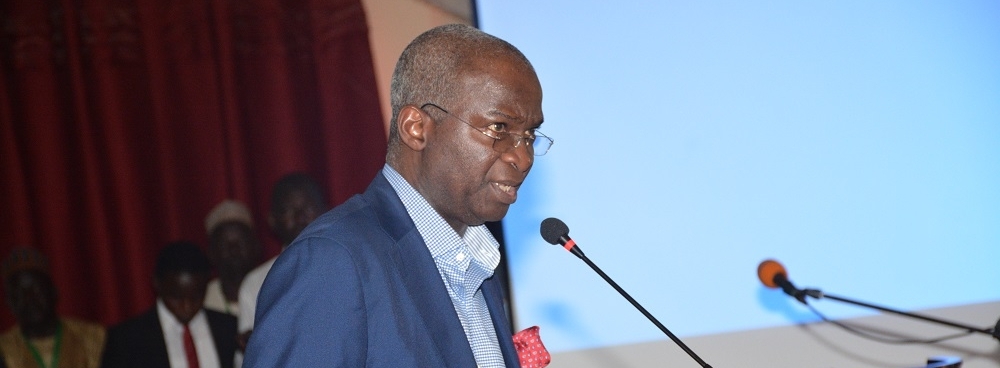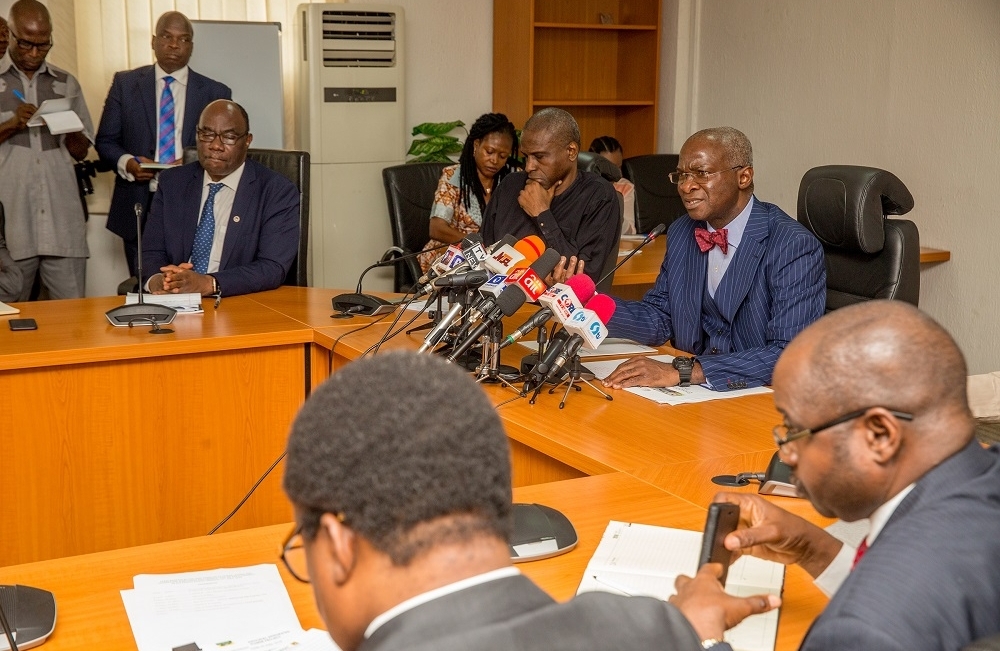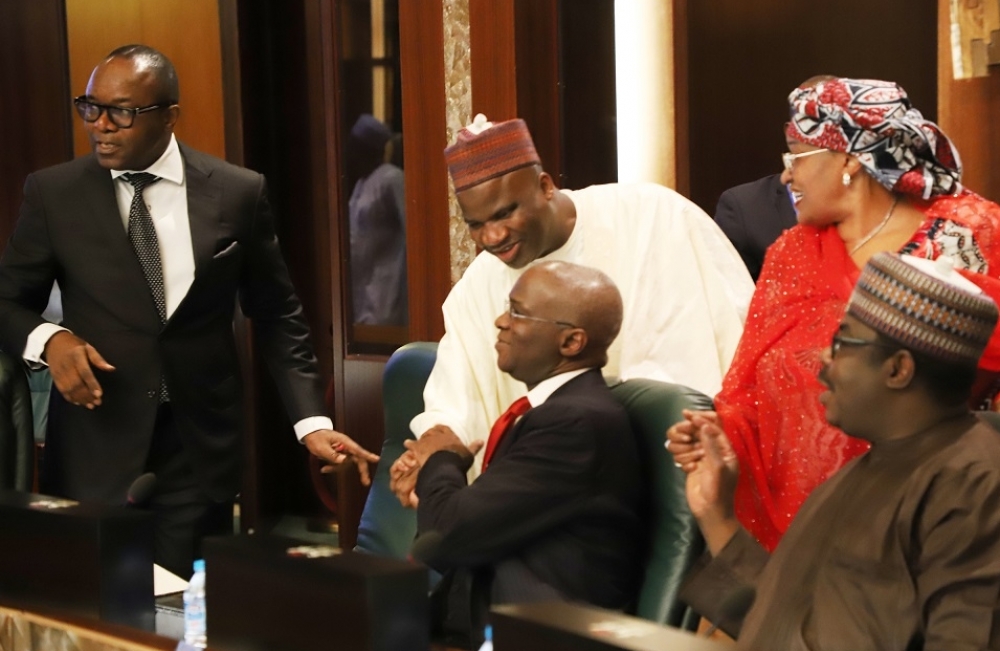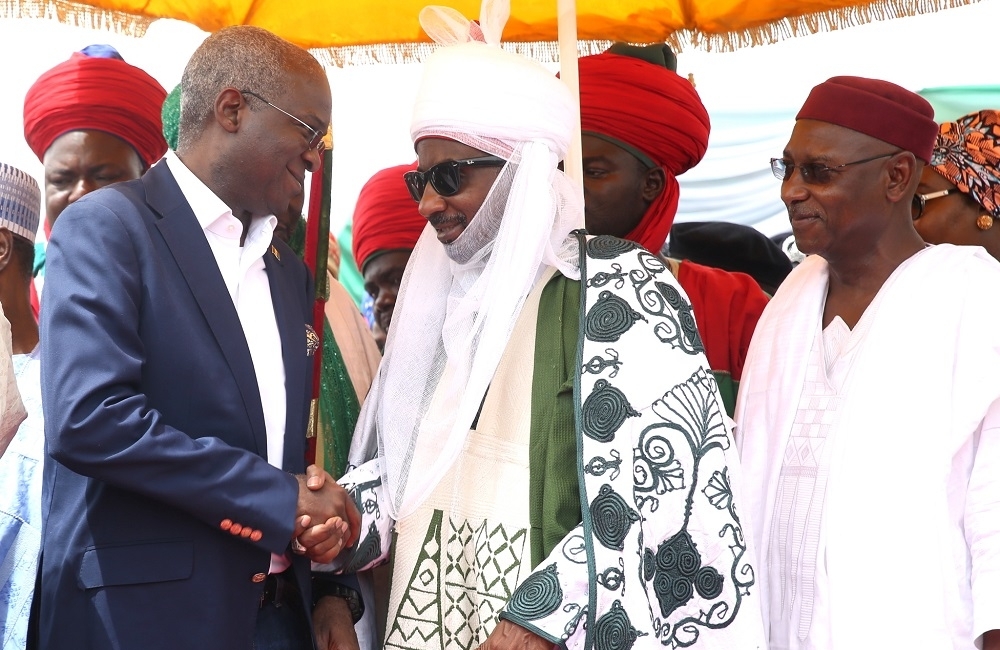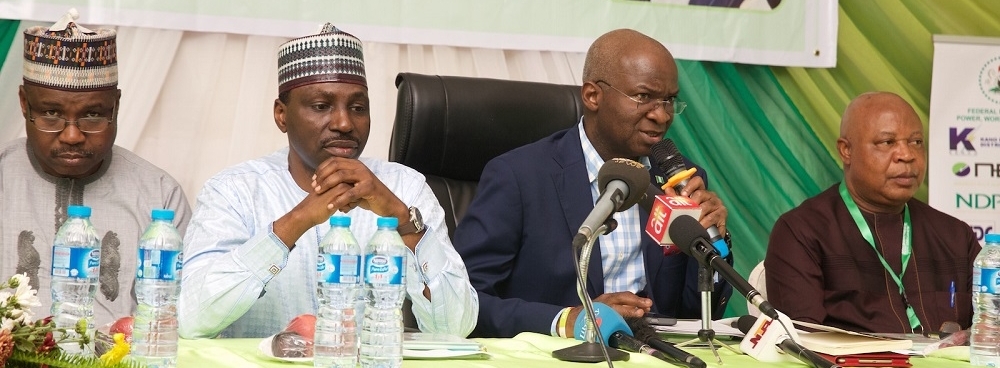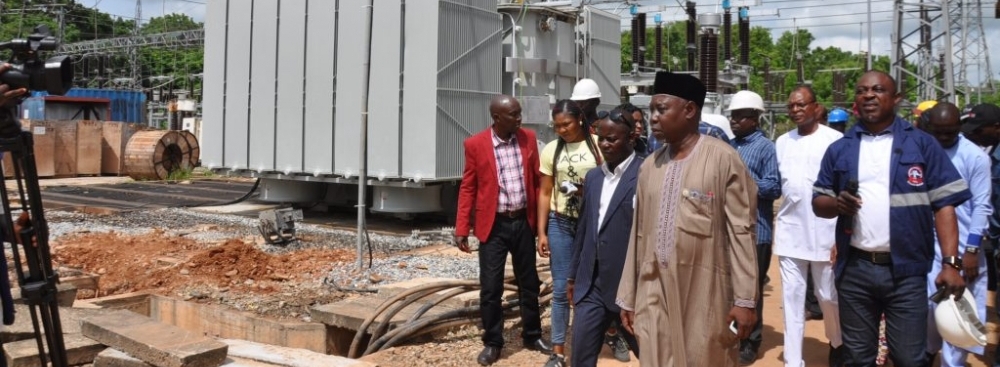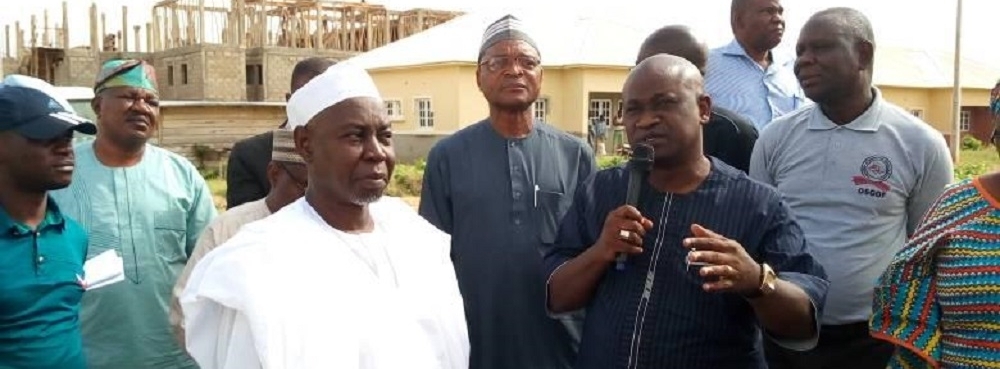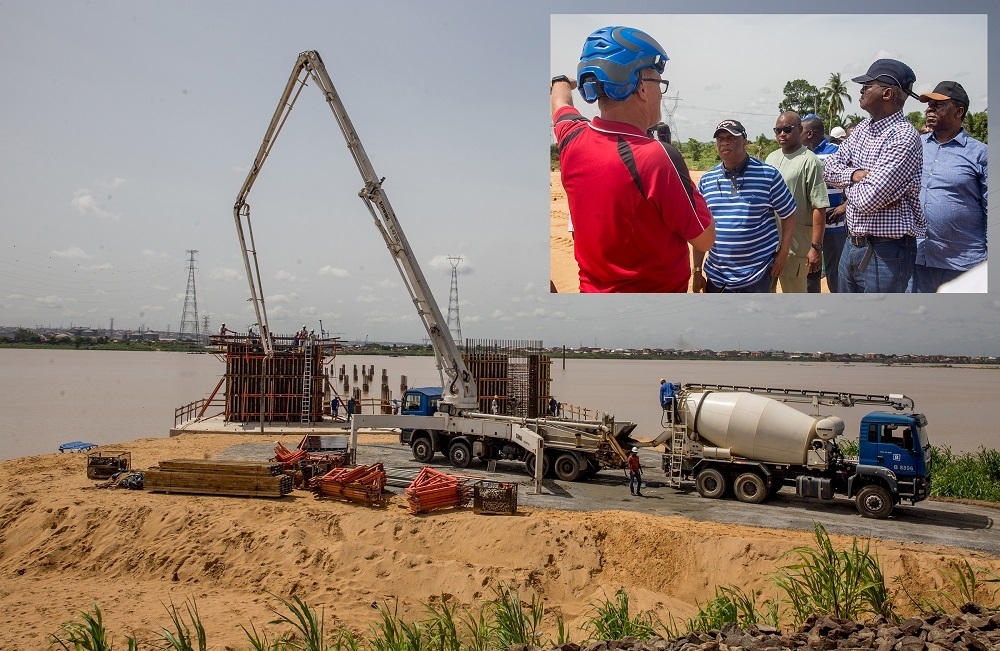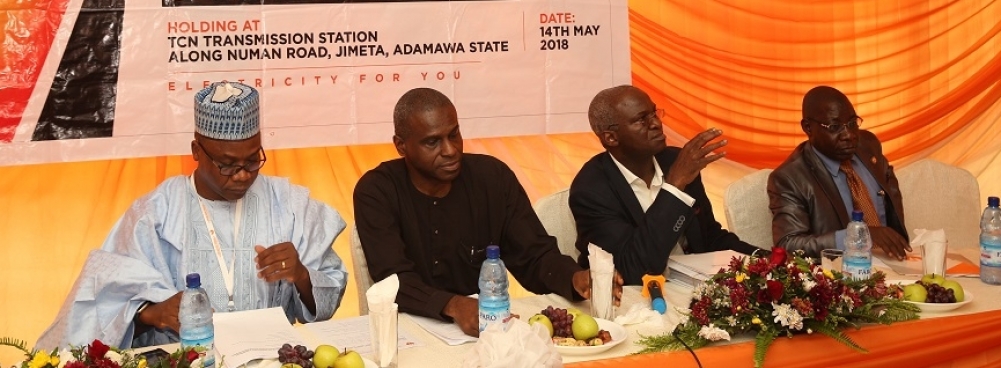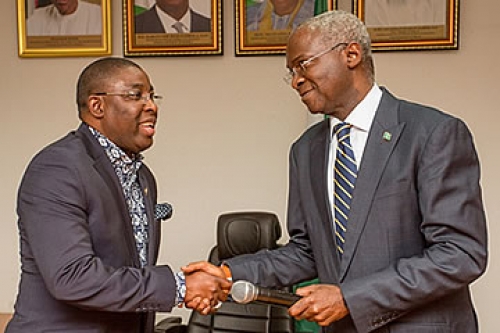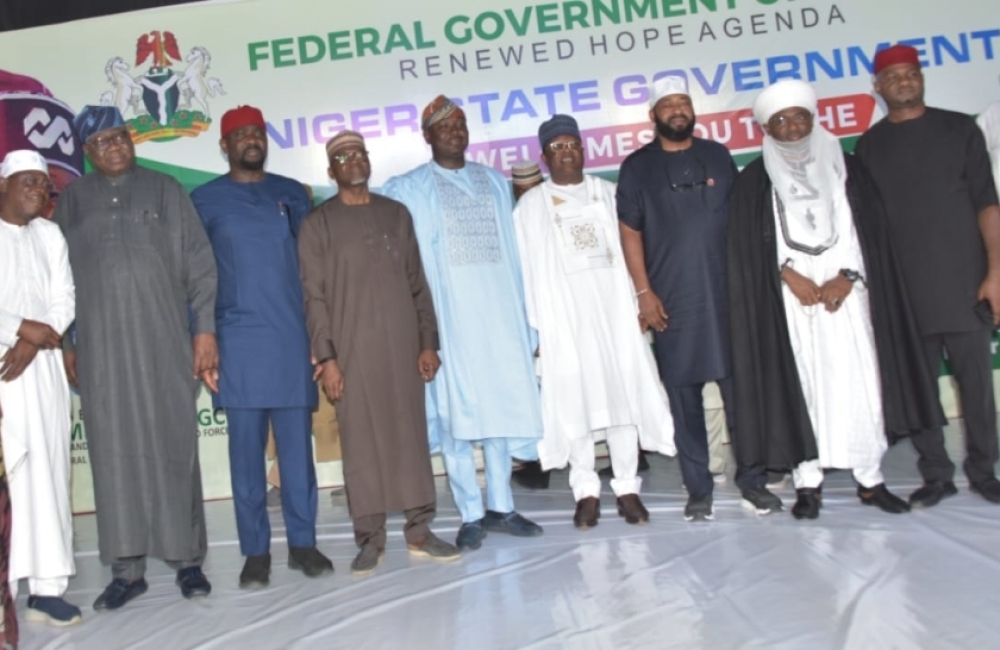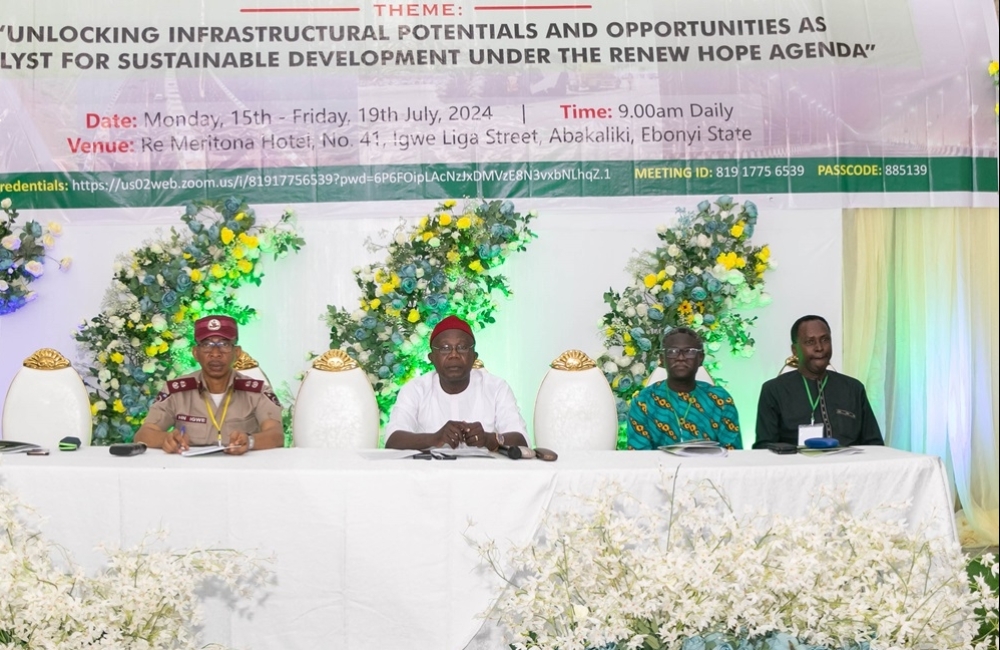Text Of The Special Herbert Macaulay Memorial Lecture Delivered By The Honourable Minister Of Power, Works & Housing At The University Of Nigeria, Nsukka
I am the most unlikely candidate to deliver a lecture on engineering and its contributions to national development.
I feel truly honored to be invited and I am humbled. As you all know too well, I am a legal practitioner, and went to university with subjects in the liberal arts, likely History, Literature, Economics and Religious Knowledge.
This itself was not a choice. It was, for me, a matter of necessity. I wanted to be a professional and law was the only profession I could gain admission to study without having to contend with Mathematics.
I just did not like Mathematics and was confounded by figures and formulas in Physics and Chemistry.
In my third year in secondary school, I was moved from the science classes to the arts and I was happy to see end of Mathematics. Or, so I thought, until Public Service beckoned.
From my days as Governor having to deal with budgets, Mathematics did not leave me as much as I thought we had parted ways.
Roads, Bridges, Waterworks, Housing projects and General Infrastructure had to be built in Lagos State if we were to come anywhere close to fulfilling electoral promises that I made and serving the people in any meaningful way.
Enter drawings, designs, calculations in bills of Engineering measurement, bills of quantities to measure costs and so much more.
Everything I thought I had parted ways with as a former student of the sciences were staring me in the face as a Governor.
I had to understand road designs, piles for bridges, housing designs, bills of quantities, dredging projects, gas pipelines to support our independent power plants, chlorine aid chemicals to treat water, visits had to be made to project sites and everywhere I entered there was an engineer of one type or the other.
TYPES OF ENGINEERING
In preparing this speech my little research further brought to fore the many ways that engineering defines our lives more than we have perhaps acknowledged.
For example, some of the diverse fields of engineering we have not paid enough attention to are:
Metallurgical Engineering which involves the research, control and development of processes used in the extraction and refining of metals.
Biomechanical and Biomedical engineering which combine the discipline of mechanical engineering with human anatomy and physiology. Resultantly, this leads to work in developing prostheses, developing movements for people with spinal injuries and refining equipment used for athletes.
Geomatic engineers collect, display and analyse data about the Earth’s surface and its gravity fields. This is crucial for developing mapping technology, delineating legal boundaries and indeed monitoring environmental changes.
Plastics engineering. At a time where there is a proliferation of plastic waste, this area of engineering can help develop technologies to manipulate and reshape plastics for recycling purposes.
Software engineering. In this age of apps, software engineers are trained in the specification, development, design and maintenance of software systems and products.
Water resource engineering. We cannot take for granted that water will always be an available resource. Indeed, there are already many examples, both at home and abroad, where the search for water has quickly escalated into conflicts. This type of engineering helps in the assessment of pollution sources, the control of flood damage and resolution of conflicts and effective management of water reserves.
As a coastal State, Lagos was threatened by flood, being 2 (TWO) meters below the sea level and again engineers around me, explaining how the drainage hydraulic systems of canals worked to prevent the State from being submerged.
It became very clear to me that engineering defines our civilization and there is no escape from it, in the way that law, orders our civilizations.
From the sub-national activities in Lagos, things have moved on to a National scale, with President Muhammadu Buhari’s decision to merge the Ministries of Power, Works and Housing into one, and my appointment as substantive Minister, with Mustapha Baba Shekuri and Suleiman Hassan Zarma as Ministers of State I and II respectively.
I stand here today on the shoulders of giants who created this opportunity.
President Muhammadu Buhari who built this platform, and the many engineers at Lagos State level and now in the Ministry of Power, Works and Housing in Abuja, who have been my pillars of support by sharing their knowledge.
As I have said earlier, engineering defines life, and for a nation with a growing population like Nigeria that requires a massive injection of infrastructure, Engineering is going to play a very important role in our journey of development and our quest for prosperity.
One of the things I hope to achieve here is to re-focus the attention of this university and others to the need that Nigeria has today and will have for many decades to come, for well-trained Engineers who will not only build our infrastructure but will maintain them.
Given what President Buhari has committed to deliver, I do not foresee a situation where any Engineer or Technician who is enterprising will not have job to do; and I will explain.
As I said earlier, our population is growing; and the impact on our infrastructure is now manifest and it is affecting our quality of life.
Whether it is this school, where you will see that lecture rooms are crowded, bed space for students is a challenge, sports facilities probably aging, and water supply a struggle.
Or at the sea ports and airports that were built decades ago, or road networks that erosion have taken over, or power transformers and distributions lines that now serve multiples of the people they were initially installed for.
You will see an opportunity for infrastructure upgrade, addition, renewal or reconstruction. Every time you see these challenges, there is inherently an opportunity for an engineer; and this is what I want us to focus on—the opportunities.
We have done it before. In the 1970s immediately after the unfortunate Civil War, Nigeria embarked on a radical infrastructure renewal, building stadia, roads, bridges, high rise towers and so on, similar to what has unfolded in the United Arab Emirate in the last decade.
In the 1990s, there was a modest effort, which coincidentally was led by President Buhari under the aegis of the Petroleum Trust Fund, which became short-lived.
Some of the roads that are still motorable in some parts of the country today were beneficiaries of that intervention, and it is no surprise that people in those places still look to President Buhari for hope because they know he has done it before.
Sadly, we missed this opportunity in the period of between 2007-2015 on a national scale when the price of crude oil, our biggest export, started rising until it exceeded to $100 per barrel and stayed there for a few years.
While many oil producing nations like Saudi Arabia, Qatar, Brazil, United Arab Emirates of Dubai and Abu Dhabi chose to invest in life changing infrastructure of hospitals, bridges airports, universities, skyscrapers, the managers of our own economy chose a different infrastructure.
They called it Stomach Infrastructure.
They shared the money that could have changed our lives.
They imported $5m worth of rice almost on a daily basis and distributed it to the people who could have produced it.
There is now judicial proceeding seeking to have some people account for how $2.2 Billion was allegedly shared for financing an election.
While the judicial proceedings will, hopefully, answer the question as to what happened, my interest is in the lost opportunity.
Around the same period and with the same opportunity of oil proceeds, the Burj Khalifa, which is 829 meters tall and has 163 floors making it, the tallest building of all time, opened in Dubai; to announce their emergence on the world stage .
It took less than 5 years to build and it cost $1.5 Bilion, less than what was allegedly diverted for elections here.
The opportunities that were lost are difficult to fully quantify in terms of material success and pride, employment for engineers, technicians, artisans, suppliers, and so much more.
This is the lost opportunity that President Buhari is determined to harness through the Economic Recovery and Growth Plan, a document that I enjoin every one of us to read.
In it, you will see a clear statement of intent, with a clear statement of actions, and you will see what each ministry is supposed to do.
For the Ministry of Power, Works and Housing, our action points relate to Power sufficiency and infrastructure delivery, especially roads, bridges, public buildings and housing, in order to reflate the economy, create jobs, improve productivity and growth.
So, when President Buhari talks about change, he wants us to understand that stomach infrastructure was a National Misadventure that must never happen again.
He wants us to commit to the type of infrastructure that changes lives, and builds real things that will deliver a shared prosperity.
When President Buhari talks about change, he wants us to remember that while billions of dollars were being mismanaged, the roads on this campus were deteriorating. Enugu-Port-Harcourt road was not motorable.
Enugu- Onitsha road was dilapidated.
Work had stopped on the Second Niger Bridge.
Work had stopped on the Zik Mausoleum, all because we chose stomach infrastructure and neglected to pay contractors and engineers.
President Buhari wants us to understand that change is not an accidental occurrence; it is a matter of choice. Unlike before, President Buhari’s government has made a different choice.
That choice is to invest our resources in infrastructure; and in 3 years the signs are becoming manifest:-
Some Contractors are now back to university roads.
The first phase of 9 out of 37 Independent Power Projects for Federal Universities has been funded from the budget and the first Green Bonds ever launched in Africa.
Contractors are back to work on Enugu–Port Harcourt and Enugu–Onitsha; the problem of the 9th Mile Road will be finally solved with a new engineering design.
Work has resumed on the 2nd Niger Bridge, and with a Presidential Infrastructure Development Fund, work should not stop again on that project because of funding, until it is completed.
The Contractor is back to site at the site of the Zik Mausoleum, and promises to complete and hand it over before December this year.
There is a housing project being undertaken in 34 states of Nigeria including this State, where no less than one thousand people are currently employed at each site including engineers.
Power projects are being delivered to critical markets under a pilot scheme to support small businesses, using young electrical engineers deploying solar and gas plants in Ariaria Market for 37,000 shops and Sabon Gari Market for 15,000 shops.
Whenever I visited all these sites, the dominant profession was engineering. Men and women involved in design, testing, measurement, mixing of aggregate to cast concrete, Iron rods for reinforcement, installing solar panels, connecting electrical appliances like transformers, circuit breakers, and many more in order to deliver life changing infrastructure.
When we talk about how difficult things became in our country, it is a conversation about the opportunities we probably did not give to our Engineers.
President Buhari is determined to change that.
If you are still looking for evidence of his commitment to change; I will share some more examples with you.
The first is a series of difficult projects that seem to have defied solutions and to which the Buhari Government directed its change agenda.
One of them is the massive commitment to developing a National Standard gauge rail network to ease transportation.
The first of these, the Lagos–Ibadan-Kano line has commenced with thousands of men and women working on the sites.
There is also the Bodo – Bonny highway and bridges to connect Bodo to the Island of Bonny in Rivers state.
You might be interested to learn that this project was conceived in the late 1970s and two different contracts to deliver it were not executed.
The project has now been awarded and the contractor is on site, employing engineers and other professionals to deliver life-changing infrastructure in the Niger Delta.
One of the things that will happen is that the dangerous crossing across the creek and Atlantic Ocean from Bodo to Bonny and back and its consequential cost and time to the people of the area will be replaced by a drive across the bridge over the water bodies.
Of course, some of you might have heard of the Mambilla Hydro power plant. To put it mildly in scope and cost it is gargantuan.
It will easily contend as the largest single power plant in Africa, with its 3,050 megawatt size and its $5.7 Billion cost.
It will involve building massive dams, casting millions of tons of concrete, deploying millions of tons of cement, iron rods, mobilising equipment, transporting them, housing workers, feeding them and developing an ecosystem of productivity in Taraba State, that will challenge all of our logistic capacities.
It will take at least 5 years to build; during which time $5.7 Billion, about N2.1 Trillion, will be expended. It is an Engineer’s dreams come true.
What is significant about it is that it was conceived since about 1972, and while many talked about it, the Buhari Government choose to act. That is change.
After many years, the Federal Executive Council of Nigeria, the highest Executive decision making body created by our constitution has approved it. The Engineering procurement and construction contract has been signed.
What is left is to raise the funding to finance it.
Instead of bemoaning the lost opportunity of many squandered billions of dollars, this project was one of the top items on President Buhari’s agenda when he visited China in 2016.
The Minister for Finance is leading our negotiation team to raise the finance.
Apart from the power that it will deliver, the construction jobs it will create, the mining employment for rocks, sand, and other building materials, the road network, the resettlement construction, and other benefits, it will unlock the agricultural promise of Taraba and surrounding states in a most defining way for our National prosperity.
But the commitment does not end at project development; it is backed by Executive action such as the President’s Executive Order No 5 that seeks to promote and secure local content by ensuring that the jobs that can be done by Nigerians must be reserved for them.
This must be good and welcome news for Nigerian professionals, especially those involved in Engineering and Construction business.
On our housing sites, there are similar directives that all the materials to used be made in Nigeria, unless they are items that we are unable to produce.
But Mr. President has not stopped there. In order to ensure that yesterday’s lost opportunities are not replicated, he is now deploying some of the recovered proceeds towards rebuilding our infrastructure.
In the Works Sector, he has just approved the release of N120 Billion towards funding 37 roads in the 2018 budget.
This is indisputable evidence of his commitment to hand Nigeria back to the people and make our money work for us.
Ladies and Gentlemen, the list of what is changing in our country for the better is long. The promise of hope and a better tomorrow are bigger than the problem that Nigeria faces today.
What remains is a matter of choice for us to choose what we want.
We will have to choose between real infrastructure and infrastructure of the stomach.
The Faculty of Engineering in the University of Nigeria and other Universities, and the Engineering students have to make, a choice; about which type of infrastructure provides security for their future.
It is, for me, truly commendable for the University of Nigeria to have inaugurated such a prestigious platform as this Herbert Macaulay Memorial Lecture, to propagate the nationalist and developmental ideals of one of the Giants of our country.
What we then do after the lecture becomes more defining than what we say.
The Economic Recovery and Growth Plan and the commitment to infrastructure renewal and development indicate clearly, where this Government’s priorities lie.
In order to make our manpower development and production respond to our National needs, I contend that the University of Nigeria must see the enormous opportunities and need for Engineers if we are to successfully deliver these projects I have listed and many more still to come.
The best way to respond and contribute to national development is to commit to producing high quality Engineering graduates, and stimulate a high Engineering undergraduate intake.
The future for jobs is promising.
Engineers will be needed not just to build Mambilla Power, the Rail projects, the Bridges, the Airports, the Seaports, and the Gas pipelines, the Power Substations and other projects, but more importantly to operate and maintain them in order to keep them running.
It is this handshake, between Government programmes and policies on one hand, and career development and manpower building by the Universities on the other hand that will take us quicker and faster towards the kind of Nigeria, that men like Herbert Macaulay in whose name we gather, dreamt of, lived for, fought for and died for.
For the construction to take place there must be a conducive work environment, where opportunities can birth Jobs, drive productivity and create prosperity; there must be peace.
Peace of a kind that requires little if any of the law enforcement capacity of the state; and a type of peace that is driven by brotherhood and peaceful coexistence.
All of us must seek that kind of peace in our enlightened common interest.
I seriously think that the best that security agents can do is to prevent conflict from being violent, to enforce the law and impose order.
It us, you and I, who hold the keys to peace
I thank Professor Benjamin C Ozumba, the Vice-Chancellor, the University of Nigeria, the faculty Board of Engineering for inviting me, and I thank you for listening.
Babatunde Raji Fashola, SAN
Honourable Minister of Power, Works and Housing
